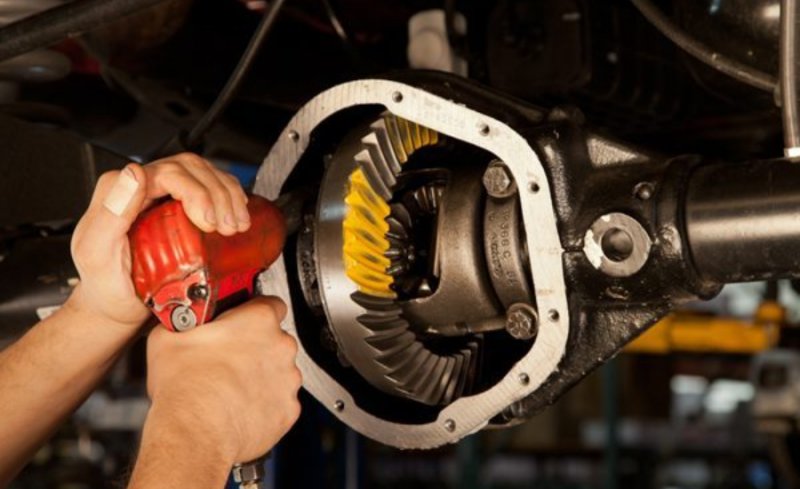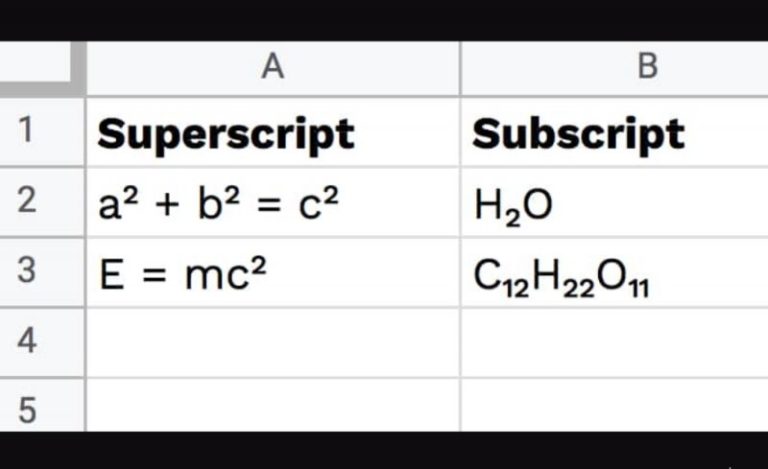Differential Repair Near Me: Expert Tips and Insights for Reliable Drivetrain Performance
A vehicle’s differential plays a crucial role in ensuring smooth and efficient operation. However, like any other component, differentials can encounter issues that require professional repair. If you require differential repair services in your area, you must understand the process and how to choose a repair shop.
We’ll cover differential repair principles, indicators of problems, cost factors, and the importance of professional repair services in this comprehensive guide. By the end, you’ll be equipped with the knowledge to make informed decisions when it comes to differential repair near you.
Understanding Differentials
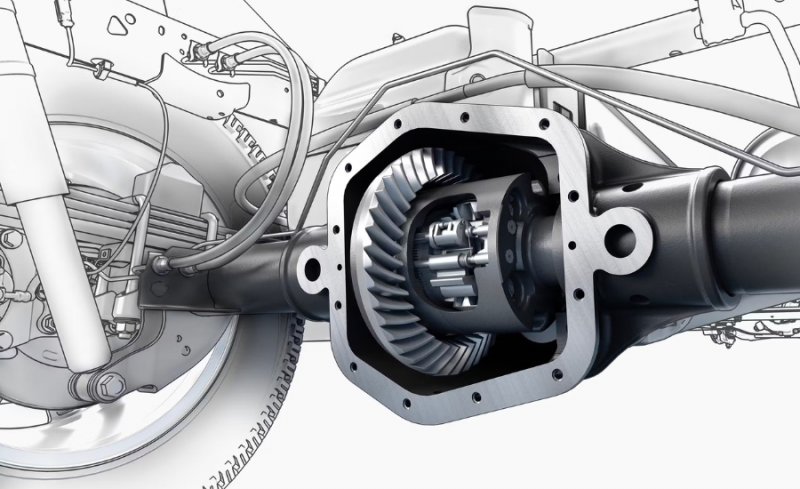
A. What is a differential?
The differential allows wheels to rotate at different speeds while preserving traction and stability. It distributes power equally to the wheels and lets them revolve at different rates, notably during turns, in the axle assembly’s center. By utilizing a complex system of gears, the differential compensates for the different distances traveled by the inner and outer wheels when cornering, preventing tire wear and strain on the drivetrain.
B. Types of differentials
Differentials have varied properties and uses. Here are the three most common types:
Open Differential:
An open differential is the most basic and commonly found type. It allows the wheels to rotate at different speeds, providing smooth operation and good traction on regular road surfaces. However, it may not be ideal for off-road or low-traction conditions as it tends to send power to the wheel with the least traction.
Limited-Slip Differential (LSD):
A limited-slip differential addresses some of the limitations of an open differential. It uses a mechanism that limits the speed difference between the wheels, distributing torque to the wheel with better traction. LSDs provide improved traction and stability, making them suitable for varying road conditions, including light off-roading.
Locking Differential:
Locking differentials offer maximum traction and are commonly used in off-road vehicles. They have the ability to lock the two wheels on an axle together, ensuring equal power distribution. When engaged, both wheels rotate at the same speed, providing excellent traction in challenging terrains. However, locking differentials are not designed for regular on-road use due to their limited maneuverability.
Understanding differential types is essential to choosing the proper one for your car and maintaining optimal performance in varied driving conditions.
Signs of Differential Problems
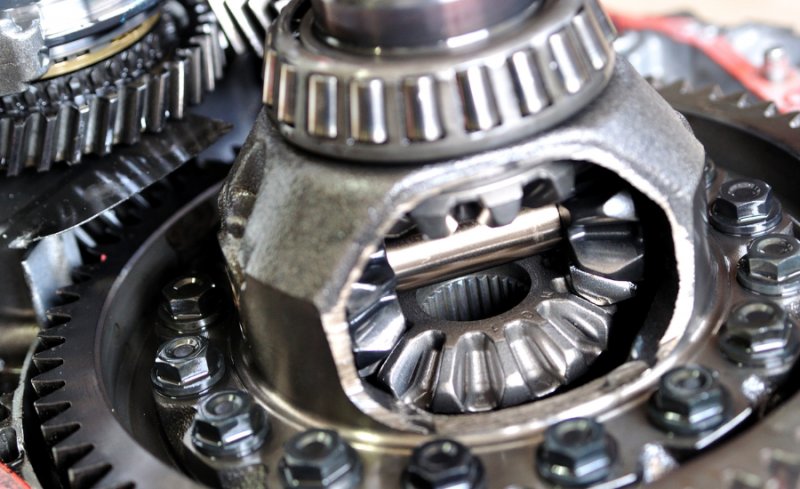
If you suspect a differential condition, be careful of these indicators:
Unusual Noises:
One of the most common signs of a differential problem is the presence of strange noises. If you hear whining, clunking, or grinding sounds coming from the rear of your vehicle, especially during turns, it could indicate worn-out gears, damaged bearings, or insufficient lubrication within the differential.
Difficulty in Turning:
Difficulty or resistance when making turns, particularly at low speeds, can be a sign of differential trouble. If you experience a feeling of dragging, binding, or jerking during turns, it may indicate issues with the differential gears or worn-out clutch packs in a limited-slip differential.
Leaking Fluid:
A noticeable fluid leak around the differential housing is a red flag. Differential fluid is necessary for lubricating and cooling the internal components, and a leak can lead to inadequate lubrication, resulting in premature wear and damage. Look for puddles or stains of thick, dark fluid under the vehicle.
Wheel Slippage:
If you notice one of your wheels spinning excessively while the other struggles to gain traction, it could indicate a problem with the differential’s ability to distribute power evenly. This issue can arise from damaged gears, worn-out clutches, or an improperly functioning limited-slip or locking differential.
It’s important not to ignore these signs of differential problems, as they can worsen over time and lead to more significant damage to your vehicle. If you observe any of these symptoms, it’s advisable to have your differential inspected and repaired by a qualified professional. Timely attention to differential issues can help ensure your vehicle’s continued performance and safety.
Different Kinds of Repair
A faulty differential or transfer case in your vehicle can result in severe and costly damage to other components, such as the transmission, and can create unsafe driving conditions. It is important to address any issues with the differential promptly. Here are some common repairs that may be required:
Gasket Replacement: This involves replacing the gasket that seals the differential to prevent fluid leakage and ensure proper functioning.
Seal Replacements: Seals in the differential prevent fluid from leaking out and contaminants from entering. These seals must be replaced if damaged.
Bearing Replacements: Bearings support the rotating components in the differential and ensure smooth operation. Replace worn bearings to prevent further harm.
Rear Differential Gear Replacements: If the gears in your differential are completely stripped or damaged, a complete replacement of the rear differential may be necessary. This is especially true if other components in the differential are also worn out.
It is advisable to perform regular maintenance on your differential to prevent minor issues from escalating into major problems. Simple tasks such as replacing gaskets and ensuring proper fluid levels can significantly extend the lifespan of your rear end. By addressing these maintenance tasks promptly, you can avoid expensive repairs and maintain a safe driving experience.
Fluid Changes Differentially
Front-wheel-drive and rear-wheel-drive vehicles have one differential or transaxle between the drive wheels. AWD and 4WD cars have two differentials, one for each wheel set. Differentials must be greased and cooled regardless of vehicle configuration.
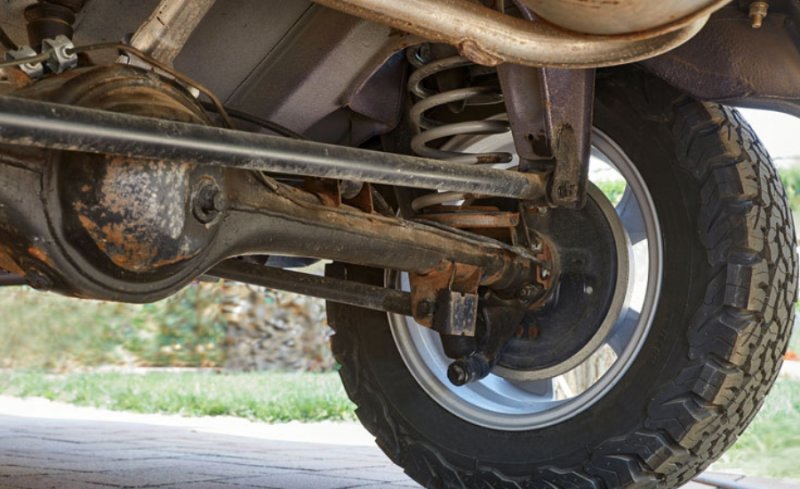
Over time, the fluid that provides lubrication to your differentials will deteriorate, making it necessary to change the differential fluid according to the service schedule recommended by your vehicle’s manufacturer. At Action Gator Tire, we specialize in the maintenance of differentials. Our process involves draining and flushing the differentials, carefully inspecting the gears and shafts inside for any signs of excessive wear, and then refilling them with fresh lubricant. This ensures that your differentials operate smoothly and reliably.
By following the recommended maintenance schedule and entrusting your vehicle to professionals who understand the intricacies of differentials, you can extend their lifespan and maintain optimal performance. At Action Gator Tire, we are dedicated to providing these essential services to keep your vehicle running smoothly on the road.
Choosing a Differential Repair Service
When it comes to choosing a differential repair service, it’s crucial to make an informed decision to ensure quality repairs and reliable service. Start by conducting thorough research to identify local repair options in your area. Look for reputable repair shops that specialize in differential repairs and have a proven track record of expertise in handling such repairs. Online consumer reviews and testimonials can help determine their reputation. Customer reviews can reveal the shop’s reliability, professionalism, and quality.
In addition to reputation, consider the experience of the repair shop and its technicians. Differential repair requires specialized knowledge and skills, so it’s essential to entrust your vehicle to professionals who are well-versed in differential systems. Experienced technicians will have a deeper understanding of differential issues and the expertise to diagnose and repair them effectively.
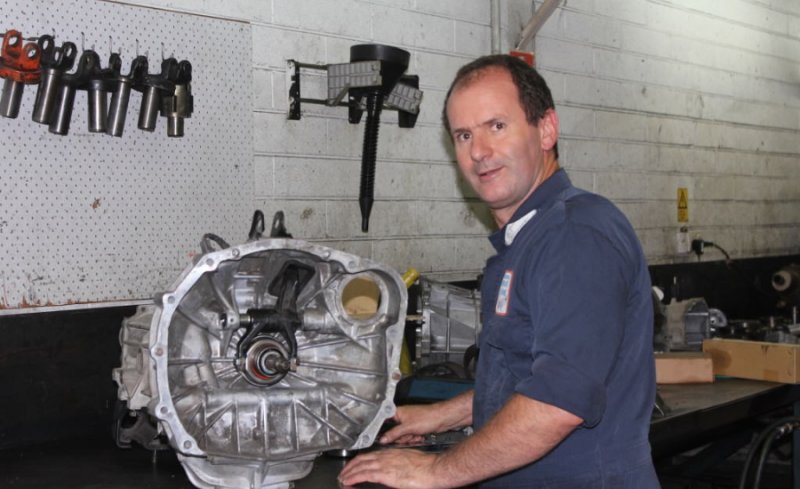
It’s also recommended to inquire about the warranty and guarantee offered by the repair shop. A reputable service provider will stand behind their work and offer warranties on parts and labor. The warranty covers any concerns after the repair, giving you peace of mind.
Lastly, consider the overall customer service and communication provided by the repair shop. A reliable differential repair service will prioritize clear communication, keeping you informed about the repair process, estimated costs, and any additional recommendations. They should be responsive to your questions and concerns, ensuring that you have a positive customer experience throughout the repair journey.
By thoroughly researching and evaluating differential repair services based on their reputation, experience, warranty, and customer service, you can confidently choose a repair shop that will provide the expertise and quality repairs your vehicle needs.
Factors Affecting Differential Repair Cost
Several factors come into play when determining the cost of a differential repair. These considerations can help you estimate costs. Key differential repair cost factors:
Type of Differential: The type of differential in your vehicle can have an impact on the repair cost. Different types of differentials have varying complexities, and repairs for more advanced differentials, such as limited-slip or locking differentials, may require additional expertise and specialized parts, resulting in higher repair costs compared to standard open differentials.
The extent of Damage: The severity of the differential damage influences the repair cost. Minor issues, such as replacing worn-out bearings or seals, might be less expensive to repair compared to major damage that requires extensive gear replacement or complete differential rebuilds. Repairing or replacing more parts increases expense.
Labor Costs: Labor costs play a significant role in differential repair expenses. The complexity of the repair, the time required for disassembly and reassembly, and the expertise needed to work on differentials contribute to the labor cost. Shops with highly skilled technicians may charge higher hourly rates, but their expertise can ensure quality repairs.
Cost of Replacement Parts: Another factor is replacement part cost. The cost of gears, bearings, seals, and other repair parts depends on the vehicle make and model, as well as the part quality and brand. High-performance or OEM (Original Equipment Manufacturer) parts may be more expensive than aftermarket alternatives, impacting the overall repair cost.
These characteristics, geography, and the repair shop’s pricing structure can affect differential repair costs. Consult trustworthy differential repair specialists to get an accurate quotation. They can examine your vehicle’s demands and break down the prices.
Importance of Professional Differential Repair
Opting for professional differential repair services is crucial for ensuring the optimal performance and longevity of your vehicle’s differential system. Professional repair offers several key advantages that make it worth considering. Firstly, professional technicians possess the expertise and knowledge required to diagnose and repair differential issues accurately. They have a deep understanding of the intricate workings of differentials and are trained to identify and resolve problems efficiently. Their experience in handling differential repairs enables them to tackle even complex issues with precision.
Another advantage of professional repair is access to specialized tools and equipment. Differential repairs often involve intricate components and precise adjustments. Differential repair companies use specialized tools and diagnostic equipment. These tools allow them to precisely fix and position all components for optimal operation.
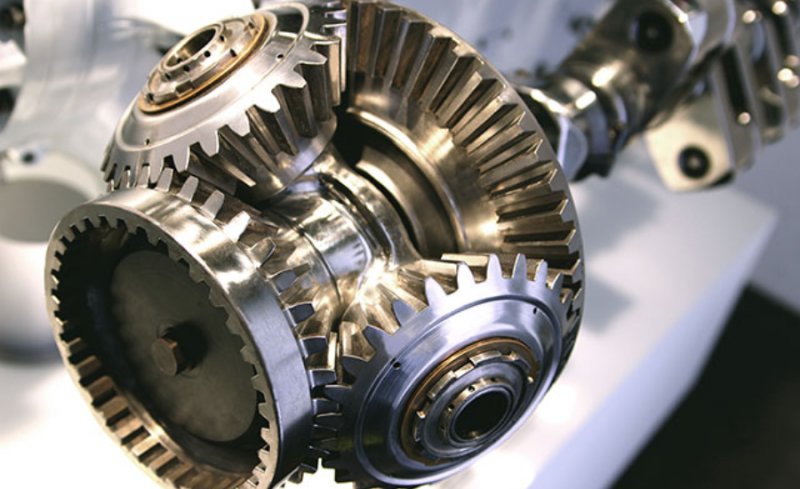
Professional differential repair providers also guarantee their work. This ensures that the repair company will fix any faults after the repair. This warranty coverage protects the repair shop’s work and shows its trust.
Attempting to repair a differential without the necessary expertise or tools can lead to costly mistakes and potentially further damage to the differential system. DIY repairs or unqualified mechanics may not fully understand the complexities of the differential or may use incorrect procedures or low-quality parts. This can result in subpar repairs that may not address the root cause of the problem or may lead to premature failure of the differential components.
Professional differential repair offers expertise, specialized tools, and warranty coverage, ensuring that your vehicle’s differential is repaired correctly and functions optimally. By entrusting your differential repair to professionals, you can have confidence in the quality of the repairs and the long-term performance of your vehicle’s differential system.
Preventive Maintenance for Differentials
Preventive differential maintenance preserves performance and extends longevity. Prevent future problems and costly repairs by being proactive. Differential health requires fluid checks and modifications. Differential fluid cools and lubricates internal parts. The fluid can deteriorate with time. Regular fluid checks and manufacturer-recommended fluid replacements guarantee proper lubrication and prevent excessive wear and overheating.
Preventive maintenance includes checking seals and gaskets. Seals and gaskets prevent differential fluid leakage. These seals can leak or degrade, causing fluid loss and harm. Seals and gaskets should be checked for wear and leaking and replaced as needed to ensure differential system integrity.
Lubrication extends lifespan. It’s important to use the proper lubricants for differentials. Applying the right lubricants at the right intervals optimizes performance and reduces wear and damage.
Differential examination should also follow the manufacturer’s maintenance schedule. Regular inspections uncover possible concerns like worn gears or bearings and enable for timely repairs or replacements before more damage occurs.
Preventive maintenance can increase your differential’s lifespan and reduce costly replacements. A well-maintained differential system requires fluid checks and changes, seal and gasket inspections, correct lubrication, and following the specified maintenance plan.
People Also Ask (FAQs)
What is the average cost of differential repair?
Differential repair costs depend on the differential type, damage, labor, and parts. Consult a reputed repair shop for a customized estimate.
How long does it take to repair a differential?
The differential repair time depends on issue’s complexity and part availability. Minor repairs may be completed within a few hours, while more extensive repairs or complete differential rebuilds could take several days. Your repair shop can provide a more precise timeline based on the specific repair needs.
Can I drive with a damaged differential?
It is generally not recommended to drive with a damaged differential. A damaged differential can compromise the vehicle’s handling, traction, and overall safety. Continued driving with a damaged differential can lead to further damage and potentially more expensive repairs. It’s best to have the differential inspected and repaired as soon as possible.
How often should I have my differential inspected?
Your vehicle’s maintenance program should include differential inspection. Driving patterns, vehicle usage, and manufacturer recommendations determine inspection frequency. Consult your vehicle’s owner’s manual or a skilled mechanic for inspection intervals.
Are differential repairs covered under warranty?
The repair shop, the repair, and the warranty policies determine differential repair warranty coverage. Before initiating repairs, check warranty coverage with your repair firm.
Final Words
This comprehensive tutorial has illuminated local differential repair. We started by learning the drivetrain’s differential’s relevance. We examined open, limited-slip, and locking differentials. Next, we reviewed differential issues, highlighting the importance of strange noises, turning difficulty, leaking fluid, and wheel slippage. Early detection can reduce damage and repair costs.
A differential repair service was required. Researching reputation, experience, customer reviews, and warranty options helps you choose a trustworthy repair business with skilled technicians who can perform differential repairs. We also examined differential kind, damage, labor, and part costs. Understanding these aspects improves differential repair budgets and decision-making. Professional differential repair was stressed for its experience, specialized tools, and warranty coverage. Professional differential repair assures high-quality repairs, maximizing performance and longevity.
Finally, differential preventive maintenance includes fluid checks and replacements, seal and gasket inspections, and correct lubrication. These preventive methods preserve your differential’s performance and lifespan, preventing serious issues and expensive repairs. Follow this advice to make informed differential repair decisions around you. Proper maintenance, prompt repairs, and competent service provide a well-functioning differential for safe and smooth driving.
Stay in touch to get more updates & alerts on Hint! Thank you

